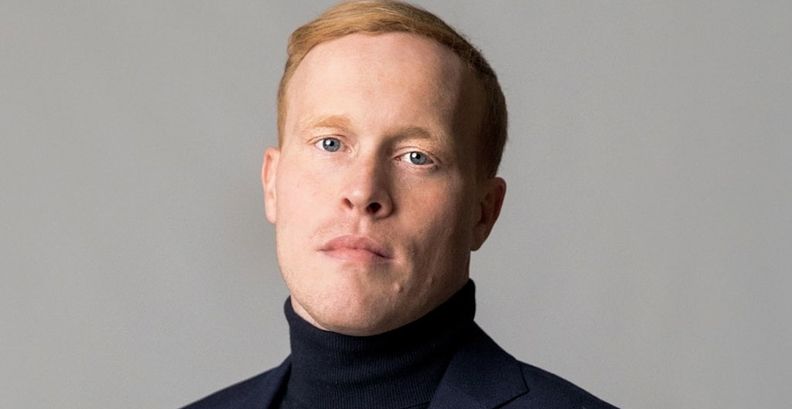

Founder and CEO Matt Middleton had big plans for Future Proof but even he admits to occasionally being stopped in his tracks by the speed and scale of the festival’s success.
About 4,500 professionals will descend on Huntington Beach, California from Sunday to attend the open-air festival, which features panel discussions and content across multiple stages, and thousands of pre-arranged network sessions. It also boasts a growing list of “experiences”, including yoga, barista training and pizza making. It has quickly earned a reputation as the quintessential modern-day conference where professionals can discuss the future of the industry in shorts and sunglasses.
After year one provided proof of concept, Middleton said the key to its growth has been simple: listening to feedback. “Everyone wants to talk about innovation as in, ‘We want to create this new reality’. The reality is all of us across this industry should just listen to our customers and what they're saying. Doing that will already create a 10% better experience, and then you can layer on all those other shiny objects.”
This meant even relatively small concerns like requests for more shaded areas were listened to. The most common feedback Middleton received in year one was that attendees didn’t walk away with as many new connections as they wanted. Since then, Future Proof has introduced Breakthru Programs (think speed dating for wealth professionals) via a tech platform so attendees can pre-arrange scores of group and one-on-one meetings.
“That was a lightbulb moment,” Middleton said. It was so successful last year that the space proved too loud for many people. The result: this year’s Breakthru sessions will have more space and more tables.
Last year’s event also invited more subjective feedback around the choice of Method Man and Redman as the main act at the event’s closing party, with some of the call-and-response lyrics labelled “demeaning to women” by one attendee who spoke to InvestmentNews at the time. Middleton defended the choice of act as in line with attendee preference (75% requested hip hop) to celebrate the genre's 50th year. Challenging the status quo as Future Proof sets out to do, he added, means pushing the envelope.
“Most people reacted positively [to the act],” he said. “Did they have additional antics [and things] they said on stage that we don't agree with? Of course, but that's something that we couldn't have controlled prior [to the event] and really tried to manage afterward. This year, we don't have hip hop because rock and country were one and two in terms of popularity, so we leaned into rock with Third Eye Blind.”
Content, be it the entertainment or professional sessions, are of course the life blood of conferences and Middleton says he and his team are constantly learning and evolving. He believes what sets Future Proof apart is how its sessions ask questions the financial services community can help answer, rather than setting “buzzword” themes that dictate and restrict what the attendee learns.
Words like “growth”, he argued, mean different things to a CEO of a large firm compared to a two-man shop or a tech company. By having 100-plus sessions available, advisors can “create their own adventure.”
For Middleton, who used to work for event giant Informa, it’s been a whirlwind journey since he had the idea for the festival during the pandemic. He knew it would be hard to get the multi-year investment he needed to make it a reality. But as luck would have it, his vision caught the imagination of long-time friends Barry Ritholtz, chairman and CIO of Ritholtz Wealth Management, and Josh Brown, Ritholtz’s CEO. That vision was turbocharged and soon became a reality.
“Those guys are one of a kind in terms of their amplification, authority, and the innovative nature of how they look and operate in this space,” Middleton said. Combined with the expertise of Future Proof team, the event has gone from 0 to 10 fueled by crucial feedback from across the wealth management ecosystem.
Middleton said: “We are just a steward of this brand, and I don't ever get that lost on that.”

Rajesh Markan earlier this year pleaded guilty to one count of criminal fraud related to his sale of fake investments to 10 clients totaling $2.9 million.

From building trust to steering through emotions and responding to client challenges, new advisors need human skills to shape the future of the advice industry.

"The outcome is correct, but it's disappointing that FINRA had ample opportunity to investigate the merits of clients' allegations in these claims, including the testimony in the three investor arbitrations with hearings," Jeff Erez, a plaintiff's attorney representing a large portion of the Stifel clients, said.

Chair also praised the passage of stablecoin legislation this week.

Maridea Wealth Management's deal in Chicago, Illinois is its first after securing a strategic investment in April.
Orion's Tom Wilson on delivering coordinated, high-touch service in a world where returns alone no longer set you apart.
Barely a decade old, registered index-linked annuities have quickly surged in popularity, thanks to their unique blend of protection and growth potential—an appealing option for investors looking to chart a steadier course through today's choppy market waters, says Myles Lambert, Brighthouse Financial.
